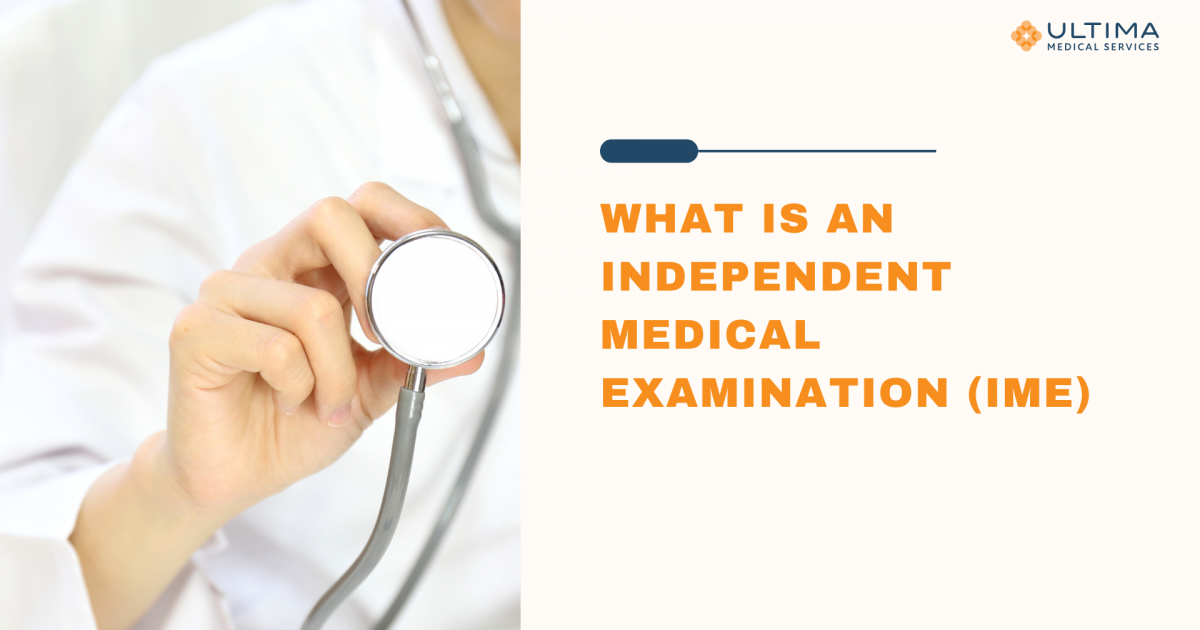Independent Medical Examinations (IMEs) serve as pivotal assessments in various legal, insurance, and occupational health scenarios. They provide impartial medical opinions that guide decision-making processes. This comprehensive guide explores the intricacies of IMEs, from their definition to their role in different contexts.
What is an Independent Medical Examination (IME)?
An Independent Medical Examination (IME) is a specialized assessment used in various contexts, including legal proceedings and insurance claims. It involves a comprehensive evaluation by qualified specialists such as Orthopaedic or Occupational Specialists and Psychiatrists. IMEs provide impartial medical opinions that help stakeholders make informed decisions, such as determining return-to-work conditions, assessing damages in legal cases, or verifying the validity of insurance claims. Independent Medical Examinations (IMEs) are commonly utilized by lawyers in courtroom litigations and by employers and insurance companies. They use IMEs to establish the conditions under which an employee can safely return to work.
The purpose of an Independent Medical Examination (IME) is to provide an impartial and unbiased assessment of an individual’s medical condition, injuries, or disabilities. This examination is typically requested by third parties such as insurers, employers, or legal entities to obtain an objective medical opinion. The key purposes of an IME include:
Validity of Claims
IMEs help verify the validity and extent of claims, such as insurance claims for accident benefits or disability claims. They provide an independent assessment to determine the accuracy of reported injuries or medical conditions.
Legal Proceedings
In legal contexts, IMEs play a crucial role in providing expert medical opinions for use in court proceedings. They help quantify damages, assess the impact of injuries, and provide objective medical insights that contribute to fair and just legal outcomes.
Occupational Assessments
Employers may request IMEs to evaluate an employee’s fitness for work, assess work-related injuries, or develop return-to-work plans. IMEs in occupational health assestment ensure that employees can safely perform their job duties without compromising their health or safety.
Unbiased Medical Opinions
IMEs are conducted by neutral physicians or specialists who are independent of the individual’s regular healthcare providers. This independence ensures that the medical opinion provided is unbiased, objective, and based on thorough medical assessments.
Decision Making
The medical reports generated from IMEs provide valuable information for decision-making processes. They help stakeholders make informed decisions regarding insurance claims, legal settlements, workplace accommodations, disability assessments, and treatment plans.

What Happens in an Independent Medical Examination?
During an IME, the physician explains the purpose and scope of the examination, conducts a comprehensive medical assessment, obtains informed consent, documents findings, ensures privacy and confidentiality, and shares the report with the requesting organization. During an IME, several essential steps occur:
Explanation of Purpose
The physician clarifies the purpose and scope of the examination to the individual being examined, emphasizing its differences from a standard medical visit.
Assessment Process
The physician conducts a thorough medical assessment, which may include physical examinations, review of medical records, diagnostic tests, and functional evaluations.
Informed Consent
The examinee provides informed consent before the examination proceeds. This includes consent for any additional procedures or tests deemed necessary by the physician.
Documentation
The physician meticulously documents all findings, observations, and medical opinions generated during the examination.
Report Submission
Following the examination, the physician compiles a comprehensive report containing their medical opinions, assessments, and recommendations. This report is submitted to the requesting party.

Who Needs an Independent Medical Examination?
Various stakeholders may require IMEs, including insurers for accident benefits assessment, employers for evaluating disability status and return-to-work plans, and legal professionals for quantifying damages in legal proceedings. Various entities and individuals may require an Independent Medical Examination (IME) for different purposes:
Insurers
Insurance companies often request IMEs to assess the validity and extent of claims, especially in cases of accident benefits or disability claims. IMEs help insurers determine the accuracy of reported injuries or medical conditions and ensure that claims are fair and justified.
Employers
Employers may request IMEs for several reasons:
- Assessing Employee Fitness: IMEs help evaluate an employee’s fitness for work, especially after a work-related injury or illness. They determine if an employee can safely perform job duties without compromising their health or safety.
- Return-to-Work Planning: IMEs assist in developing effective return-to-work plans for employees recovering from injuries or illnesses. They provide insights into necessary accommodations, modified work hours, or temporary restrictions.
- Work-related Injury Assessments: IMEs are crucial in assessing the extent and impact of work-related injuries. They help employers understand the medical implications of injuries and plan appropriate workplace adjustments.
Legal Professionals
IMEs are essential in legal proceedings, where they serve various purposes:
- Quantifying Damages: In personal injury cases or lawsuits, IMEs help quantify damages by providing expert medical opinions on the extent of injuries, disabilities, or medical conditions.
- Expert Medical Opinions: IMEs provide unbiased medical opinions that serve as expert testimony in court. They help clarify medical facts, assess causation, and address medical issues crucial to legal cases.
- Evaluating Medical Claims: IMEs assist in evaluating the validity of medical claims made by plaintiffs or defendants in legal disputes. They provide objective medical assessments based on thorough examinations and medical records.
Individuals Seeking Disability Benefits
Individuals applying for disability benefits may undergo IMEs as part of the assessment process. Insurers or government agencies use IME reports to evaluate disability claims, assess functional limitations, and determine eligibility for benefits.
Occupational Health Professionals
Occupational health professionals may use IMEs to assess workers’ health status, especially in safety-sensitive or high-risk occupations. IMEs help ensure that employees meet health and safety standards required for their job roles.
Ultima Medical Provides Independent Medical Examination
Ultima Medical, based in British Columbia, Canada, offers Independent Medical Examination (IME) services using Ultima Independent Assessments which is located at Suite B20-666 Burrard Street Vancouver BC V6C 2X8. Qualified physicians conduct comprehensive assessments, known as IMEs, to provide unbiased evaluations of individuals’ medical conditions. Tailored to meet legal, insurance, and workplace needs, these examinations ensure accurate reporting and informed decision-making. Ultima Medical’s team prioritizes objectivity and professionalism in delivering reliable IME services.
Independent Medical Examinations are essential components of various processes, providing valuable medical insights that contribute to fair and just resolutions. Understanding the purpose, process, and significance of IMEs is crucial for all stakeholders involved in legal, insurance, and healthcare domains. In conclusion, if you want to do your Independent Medical Examination, look no further than Ultima Medical Services. Get in touch to learn more about it.


